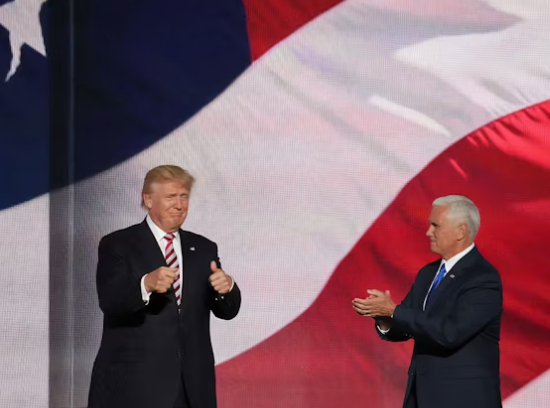$GOOG $MSFT $BTC
#Trump #Antitrust #JusticeDepartment #GailSlater #FTC #JDVance #BigTech #Regulation #Policy #MarketImpact #Crypto #Investing
Former President Donald Trump is reportedly considering appointing a strong advocate for antitrust enforcement to head a key unit within the Department of Justice. Gail Slater, known for her vocal stance on regulating technology giants, is being discussed as a potential candidate. Slater has previously worked with Senator JD Vance, a notable ally in conservative circles, and was also considered for the role of chairing the Federal Trade Commission (FTC). This move could signal a significant shift in Republican approaches to antitrust enforcement, particularly at a time when tensions between Washington and Big Tech remain high. Market participants and investors in technology-related equities such as Alphabet ($GOOG) and Microsoft ($MSFT) are taking note, as a heightened regulatory environment could influence the profitability and long-term growth trajectories of these firms.
If Slater secures the position, it could signify an active push toward stricter antitrust policies, which may target monopolistic practices in tech and other industries. This would align with broader bipartisan criticisms of tech behemoths, whose market dominance has sparked concern over competition and consumer rights. The financial implications could be pronounced. Increased scrutiny could weaken the firms’ abilities to maintain their grip on various sectors, creating opportunities for smaller competitors to gain footing. Conversely, these giants might experience slowed revenue growth, curbing investor enthusiasm. Recent market fluctuations around regulatory developments underscore the sensitivity of Big Tech stocks to policy uncertainty. Despite these risks, cryptocurrency markets like Bitcoin ($BTC) may face indirect impacts, as heightened focus on the digital economy often catalyzes discussions on decentralized alternatives.
Gail Slater’s previous regulatory experience extends beyond the tech sector, sparking speculation about how her potential leadership might impact other industries. Her collaboration with JD Vance suggests she may emphasize a more populist economic agenda, prioritizing measures that purportedly benefit smaller enterprises and everyday consumers. This could include scrutinizing mergers and acquisitions across healthcare, finance, and energy sectors. Consequently, merger-heavy industries might see a shift in sentiment, with share prices of companies in ongoing acquisition deals experiencing additional volatility. Speculative bets on these sectors could become more conservative, as investors await clarity on the antitrust outlook. Broader market indices, already reflecting geopolitical and economic headwinds, could experience additional pressure from these uncertainties.
For crypto markets, while not directly related to antitrust discussions, regulatory focus on Big Tech’s data privacy practices and financial ventures could resonate. Should stricter policies on data usage emerge, they might indirectly boost crypto adoption under the banner of promoting decentralized finance (DeFi). Increased scrutiny of payment systems and tech firms’ blockchain-related ventures may enhance the value proposition of Bitcoin and other cryptocurrencies as alternatives outside traditional regulatory frameworks. Investors in both equities and digital assets would be wise to monitor these developments closely, as they might define the investment landscape in the near future.







Comments are closed.